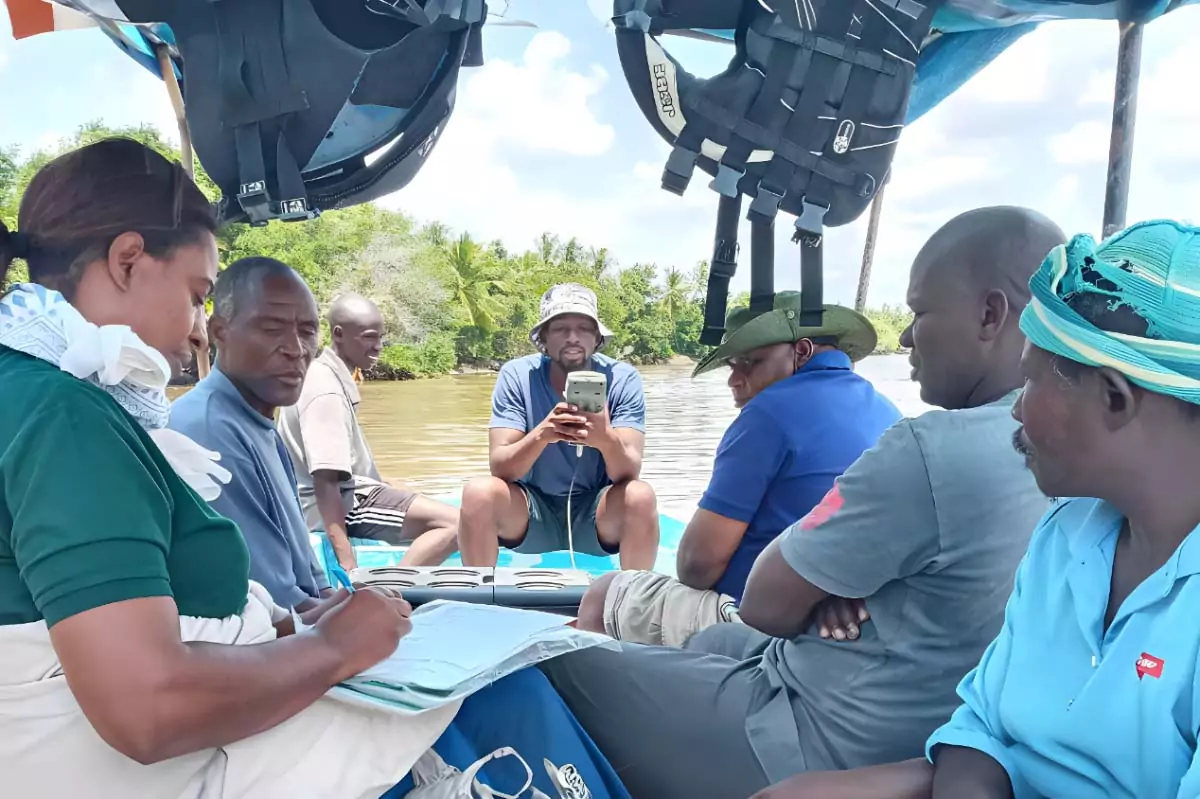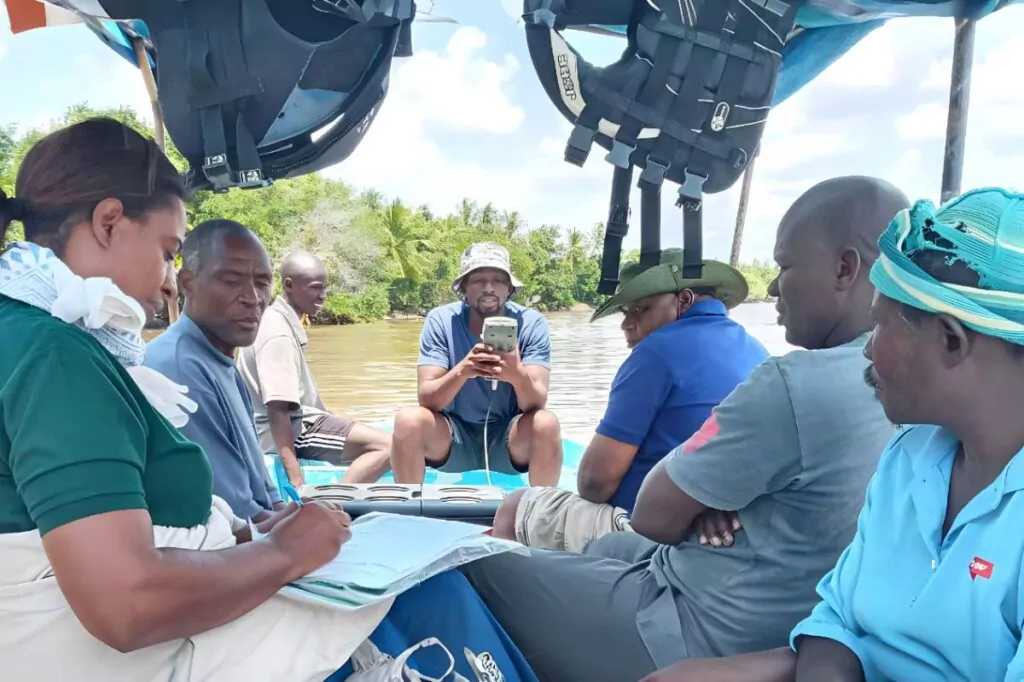Assessing the biodiversity of eels and supporting sustainable fisheries and habitat protection: These are two of the goals of our partnership project BIOEELS in Tanzania. In the past few months, the project has achieved some remarkable progress, despite a bumpy start due to the COVID19-pandemic.
At Pangani and Rufiji rivers, BIOEELS mapped the existing eel habitats. In the mapping process, the project collaborated with local fishers to create a mutual learning experience. On top of that, BIOEELS scientists recorded the catch composition of anguilliform species and associated fish species at Pangani and Rufiji estuaries for three months, already collecting a total number of 26 species. The sampling process is still ongoing.
In September 2021, training of enumerators in the use of the electric Catch Asystem Survey (eCAS) mobile application, a digital tool for the collection of fisheries data, was conducted. More than 600 records have already been entered into the eCAS system and the data are available on the eCAS system.
Master’s students involved in the project show good progress, participating in data collection, drafting project reports and managing all activities related to project implementation in Tanzania.
Evaluating Marketing and Value Chains
Besides the assessment of biodiversity in potential eel habitats and research on biology and ecology of migratory eels in certain systems in Tanzania, the project focuses on an evaluation of sociocultural and economic factors affecting the sustainability of the eel fisheries. It therefore also aims at investigating the marketing and value chains of eel fisheries and fisheries products.
The project has been introduced to key stakeholders through community workshops in two villages at Pangani and four villages at Rufiji rivers. At Pangani and Rufij river, interviews were conducted to collect local knowledge on species and fishing dynamics, in particular concerning historical catches. Further interviews with different stakeholders (fishers, key informants, traders, officers) in the region aimed at the assessment of eel-related value chains. The interviews are currently being evaluated.
Engaging the Public
The project was also introduced to the Tanzanian community during the University of Dar es Salaam research week in May and at the Dar es Salaam SABASABA International trade fair in July 2021. We are very proud that BIOEELS won an award for the best interdisciplinary project at the Department of Aquatic Sciences and Fisheries Technology and also a second award as the project that contributed a large amount of funds for research and training at the University of Dar es Salaam!
Overall, the project is now on a good way to achieve its goals.


